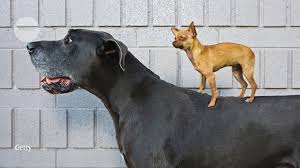What happens if a dog eats jello? The History of Xylitol and its Affect on Dogs
The reason is, jello typically contains the artificial sweetener xylitol, which is unsafe for your pooch. Xylitol is extremely toxic for your dog and even small amounts of it can cause hypoglycemia, seizures, liver failure, and death.
What kind of jello can dogs eat? Plain, unflavored gelatin is safe for dogs. What’s bad is the high sugar content – especially artificial sweeteners like xylitol. Never give your dog anything with xylitol in it. It’s better to make your own homemade jello than to buy something that you bought from a retail store.
Does all jello have xylitol? Does Jello have xylitol? Some Jello may have xylitol. If you go with sugar-free Jello, they may contain artificial sweeteners like xylitol.
Why is gelatin good for dogs? Gelatine has many benefits:
Gelatine contains collagen. Collagen is one of the most abundant proteins in your dog’s body and it makes up a large part of its bones, skin, hair and nails.
What happens if a dog eats jello? – Additional Questions
What does xylitol do to dogs?
Symptoms of xylitol poisoning in dogs include vomiting, followed by symptoms associated with the sudden lowering of your dog’s blood sugar, such as decreased activity, weakness, staggering, incoordination, collapse and seizures.
What fruit can dogs not eat?
What Fruits Are Not Good for Dogs?
- Avocado. This fruit contains persin, a toxin that makes dogs throw up and have diarrhea.
- Cherries. Cherry pits contain cyanide.
- Grapes. Grapes can cause sudden kidney failure in dogs.
- Tomatoes. The green parts of the tomato plant have solanine, which is toxic to dogs.
Is peanut butter safe for dogs?
Dogs can eat – and many really enjoy – peanut butter. But beware, some peanut butter brands contain an ingredient called xylitol, which is toxic to dogs and even eating small amounts can be fatal. Xylitol is an artificial sweetener that is often used in foods to keep the product sugar-free.
Are bananas good for dogs?
Yes, dogs can eat bananas. In moderation, bananas are a great low-calorie treat for dogs. They’re high in potassium, vitamins, biotin, fiber, and copper. They are low in cholesterol and sodium, but because of their high sugar content, bananas should be given as a treat, not part of your dog’s main diet.
Does xylitol have another name?
XYLITOL is a sweetener that is found in a wide range of products. It might also go by other names, including wood sugar, birch sugar, and birch bark extract.
What are the ingredients in jello?
Jell-O powder consists of five ingredients: water, gelatin, sugar or artificial sweeteners, artificial flavors, and food coloring.
How much xylitol is toxic to dogs?
Xylitol consumption is considered harmless to people but is known to cause life-threatening toxicoses in dogs. Dogs that ingest doses of >0.1 g/kg of xylitol are at risk for developing hypoglycemia, while dogs that ingest >0.5 g/kg may develop acute liver failure.
Can a dog survive eating xylitol?
“Xylitol is extremely toxic to dogs.” Xylitol is extremely toxic to dogs. Even small amounts of xylitol can cause hypoglycemia (low blood sugar), seizures, liver failure, or even death in dogs.
What fruit can dogs not eat?
What Fruits Are Not Good for Dogs?
- Avocado. This fruit contains persin, a toxin that makes dogs throw up and have diarrhea.
- Cherries. Cherry pits contain cyanide.
- Grapes. Grapes can cause sudden kidney failure in dogs.
- Tomatoes. The green parts of the tomato plant have solanine, which is toxic to dogs.
Are bananas good for dogs?
Yes, dogs can eat bananas. In moderation, bananas are a great low-calorie treat for dogs. They’re high in potassium, vitamins, biotin, fiber, and copper. They are low in cholesterol and sodium, but because of their high sugar content, bananas should be given as a treat, not part of your dog’s main diet.
Can dogs eat popcorn?
So is it safe for dogs to eat popcorn? Yes and no. Plain, air-popped popcorn is safe for dogs to eat in small quantities. Buttered popcorn or popcorn with other toppings is not safe for your dog on a regular basis, although eating a few dropped pieces here and there probably won’t hurt him.
Can dogs eat ice cream?
Dogs Don’t Digest Milk Well
Eating ice cream may cause your dog a stomach ache or worse, depending on how sensitive they are. Ice cream can cause your dog gas, bloating, constipation, diarrhea or vomiting.
Can dogs eat potatoes?
White potatoes belong to the nightshade family of vegetables, which includes tomatoes; like tomatoes, raw potatoes contain solanine, a compound that is toxic to some dogs. However, cooking a potato reduces the levels of solanine. If you do feed your dog a potato, it should be baked or boiled, with nothing added to it.
Can dogs eat pasta?
Dogs can eat plain white rice or pasta after it’s cooked. And, a serving of plain white rice with some boiled chicken can sometimes make your dog feel better when they are having stomach problems.
Can dogs eat french fries?
French fries are high in salt, fat, and carbs, which can lead to canine weight gain. Restaurant or fast food fries can be hazardous to dogs because of their exceptionally high salt content. Additionally, restaurant-prepared fries often contain seasonings harmful to dogs, like garlic or onion powder.
Is broccoli good for dogs?
Broccoli is high in fiber and vitamin C and low in fat. It is safe for dogs to eat, raw or cooked, as long as no seasonings are added.
Can dogs eat mashed potatoes?
Can dogs eat mashed potatoes? Yes, as long as the potatoes are roasted and not boiled and no salt, seasonings, milk or butter is added your pet can enjoy this all-time favourite dish. However, there isn’t much nutritional value your dog will be able to get from eating mashed potatoes.
